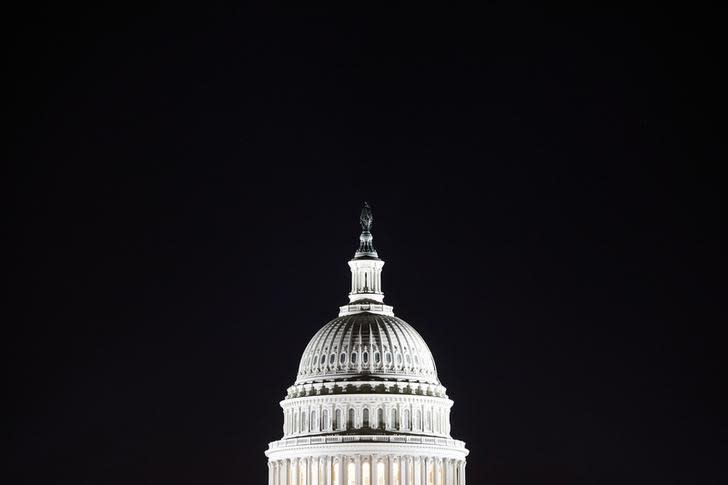Trump’s grade on the economy ticks back up to A-

In the year since Donald Trump won the U.S. presidency, earnings have crept upward, employers have added 1.8 million jobs, and the stock market has soared by 22%. That’s enough to boost Trump’s grade on the economy to A- in the latest installment of the Yahoo Finance Trumponomics Report Card.
Trump’s initial grade was a B when we launched the report card in May. Strong job growth — including the manufacturing sector
— and the seemingly unstoppable stock market pushed his grade to B+
over the summer, then to A- in September. The grade fell by one notch
after a weak employment report for September, which was largely due to
hurricanes that slammed Texas and Florida. But hiring came back strong
in October, pushing the grade back to A-.
Our Trumponomics Report Card measures six key economic indicators under Trump compared with six prior presidents at the same point in their presidency, going back to Jimmy Carter in the 1970s. Moody’s Analytics provides the data, which we convert into letter grades. (Here’s our complete methodology.)
Job growth was stronger at the same point in the first terms of Jimmy
Carter in 1977 and Bill Clinton in 1993. The stock market did better in
the early days of Barack Obama and George H.W. Bush. But Trump is
presiding over a kind of Goldilocks economy that isn’t exactly roaring,
but its doing reasonably well all around. Here’s how he measures up on
our six indicators:

Source: Moody’s Analytics, Yahoo Finance
With
every update to the report card, we point out that Trump inherited an
economy that had been steadily improving for years. The pace of job
growth today is roughly the same as it was during the last two years of
the Obama presidency. The stock market began to recover from
post-recession lows all the way back in 2009, and has mostly gone upward
since. It won’t truly be the Trump economy until he’s been in office
for at least a year, maybe more.
Trump’s tax plan will impact the economy
Yet
Trump is also pushing for policy changes that could have a powerful
impact on the economy —both positive and negative. The Republican
tax-cut plan he backs would boost corporate profits and stock values, if
it passes. Trump has been rolling back regulations, another move that’s
good for businesses. Some analysts think such moves have already goosed
stock prices, partly because of real changes and party because of
expected ones.

Source: Moody’s Analytics, Yahoo Finance
Trump
is also pushing some changes that might spook markets and depress
hiring – most notably, revisions to the North American Free Trade
Agreements. Trump has threatened to withdraw completely from NAFTA if
Canada and Mexico don’t offer major concessions. So far, his bark has
been worse than his bite, but corporate executives familiar with ongoing
negotiations say they’re worried.
By
the middle of 2018, Trump policies should have a more direct impact on
the economy. By then, we’ll know whether Republicans who control
Congress are able to pass tax cuts. The fate of NAFTA will be clearer,
as well. Then will come the 2018 midterm elections, which will be a
referendum of sorts on how Americans feel about the Trump economy. For
the time being, it is one thing Trump has going for him.
Yahoo news
